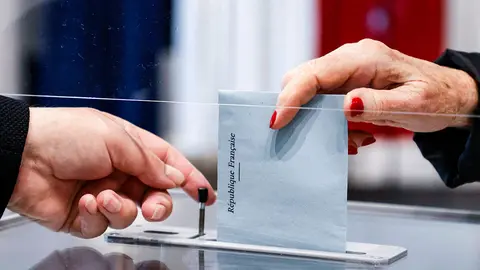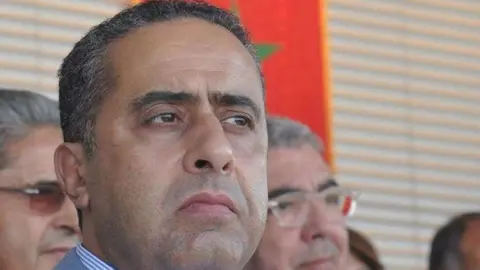Macron's risky gamble

At a time when the world is increasingly interconnected, when challenges are transnational and the vulnerability of the state is inevitable, the French citizen seems to be leaning towards a nationalist, sovereigntist vision, rejecting immigration, and moving away from the Europeanist spirit embodied in the European Union. All these ideas are typical of a French extreme right that, although demagogic, has managed to seduce a large part of the French electorate.
The rapid convocation of the legislative elections scheduled for 30 June 2024 in a first round, and foreseeably a second round on 7 July, are "per se " historic. It is not only a question of the election of the 577 deputies of the Assembly and, consequently, of the figure of the prime minister, but also of the possible fragility of the French state on its own territory, as well as at the European and international level. The possibility of cohabitation, i.e. a head of state from one party and a prime minister from another, is a formula that General Charles de Gaulle considered at the time, and this unprecedented form of institutional governance is possible. Under the Fifth Republic, France has experienced three cohabitations, Mitterrand-Chirac (1986-1988), Mitterrand-Balladur (1993-1995) and Chirac-Jospin (1997-2002).
So why is the possible cohabitation in 2024 so alarming, given that France has already experienced cohabitation in the past? In reality, the political differences between the left and the right in France in the 1980s and 1990s were rather nuanced, never so opposite. Everything suggests that a possible cohabitation between the head of state Emmanuel Macron (centre) and Jordan Bardella (extreme right) would cause unusual national and European alarm. The young Jordan Bardella is emerging as a possible prime minister at the age of 28, the son of Italian immigrants, educated in the Parisian suburbs, an outstanding student in his teens, although he did not finish his university studies in geography at the Sorbonne, he has become the favourite figure of French youth. A figure that contrasts with the current Prime Minister Gabriel Attal, 35, a centrist candidate, a brilliant student at the prestigious Sciences Po who embodies the elite that the people visibly reject today. Two figures that rival the left-wing coalition, urgently formed under the name of Nouveau Front Populaire (New Popular Front) grouping together ecologists, socialists, communists, as well as the so-called France Insoumise (Unsubmissive France). Although it is not yet clear who might become prime minister, the controversial politician Jean-Luc Mélenchon seems to be the likely choice.
But what is wrong with France and why is the extreme right "in crescendo"? The discontent of the French people with the current government is remarkable. The extreme right is increasingly visible, going from having 8 MPs in the national elections of 2017, to 88 in those of 2022, growing exponentially in the European elections of 9 June, being the most voted political force on French territory (31.37%), obtaining 30 MEPs of the 59 that have made up this grouping (Identity and Democracy) within the European Parliament. It is not the first time that the extreme right has won the European elections, but it is the first time that it has done so with such a resounding victory. Paradoxically, the founding country of the European Union has placed more MEPs who do not agree with the European project than ever before in its history and has even doubled the pro-European centrists of Emmanuel Macron's party (14.60%).
French society suffers from a latent loss of purchasing power, which is one of its main concerns, in addition to high levels of insecurity and massive immigration that has not been fully controlled. French citizens cannot understand how they can go through an ecological transition when their purchasing power is increasingly eroded by inflation triggered by the rise in energy prices from 2022 onwards. This is when war broke out between Russia and Ukraine, destabilising the continent and forcing it to look for more expensive energy alternatives, with inevitable repercussions on people's wallets. Although Macron's government has managed to reduce unemployment from 10 to 7.5%, the truth is that the French economy is stagnating, with a deficit of -5.5% of GDP and a debt of 110.6% of its GDP in 2023, with a deficit and debt that exceeds that of Spain and Germany. A bleak outlook, which both extreme ideologies on the right and left have taken advantage of to present new, hardly credible management alternatives.
By way of example, "restoring" the purchasing power of French citizens has become a banner for each political party. Jordan Bardella is putting forward as a solution the drastic reduction of VAT across the entire energy sector, from 20 to 5%, in order to "systematically" restore the purchasing power of the citizen. The resources lost by lowering VAT will be obtained, among other things, by reducing France's contribution to the EU budget. On the other hand, the New Popular Front (left) argues that it would raise the net minimum wage to 1,600 euros (it is currently 1,400 euros). A measure that the current prime minister judges controversial, pointing out that many employers would opt to lay off employees, as the costs would rise significantly and they would not be able to bear them. On the contrary, Gabriel Attal points out that restoring purchasing power could be done through the so-called "Prime Macron", which would increase from 3,000 euros to 10,000 euros per year. This bonus would consist of employers being able to exceptionally increase this annual amount to their employees, with the company being exempt from charges and taxes. This bonus could be received on a monthly basis. Three measures that outline three very different visions of how to boost the French economy.
Undoubtedly, many of the measures proposed by the extremes, left and right, are incongruous. The ecological transition is no less important, and its management is therefore key to the future of the country, the continent and the planet. The EU has indicated that by 2035, no more new thermal cars should be sold, they should all be electric. Therefore, the need to increase electricity production is paramount, which is why the Macron government has decided to build 14 nuclear reactors that will be operational from 2035. A visionary measure that aims to increasingly reduce CO2 emissions, so that wind and nuclear energy can largely supply the future energy demand. The far-right candidate does not agree, pointing out that wind energy should be stopped, because its energy cannot be stored. He also does not say how this energy will be supplied if there is an imbalance between demand and production, and that he does not agree with the EU's demands for electric cars. For its part, the left-wing group fails to come up with a uniform idea, with some of its members opposing nuclear energy.
France is not a state entity that stands alone on the international stage, and many of its decisions and actions could have serious consequences for everyone. A possible institutional cohabitation with the extreme right could reduce France's financial contribution to the EU, and could even "stall" some French support for the Ukrainian government, since the French constitution states in Article 20 that it is the government that has the use of armed force. Moreover, with regard to the climate, its management would be slowed down and at odds with EU policies.
France today is a clear example of vulnerability in the age of globalisation, the tangible consequences of an unexpected war on the domestic economy, or the massive flows of migrants fleeing wars, climate challenges and poverty are difficult to manage economically and socially. The European project has been of great help in the face of major adversities such as pandemics or energy management, where collaboration between the 27 Member States has been crucial. A project that is now in the hands of French voters, who will give their last word on 7 July, when they will finally decide which ideology should obtain an absolute majority (289 MPs) or a relative majority, showing the world what the French and European people really want.



